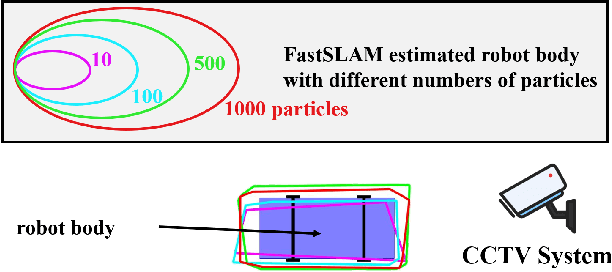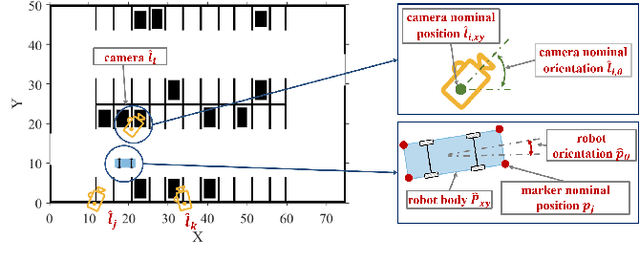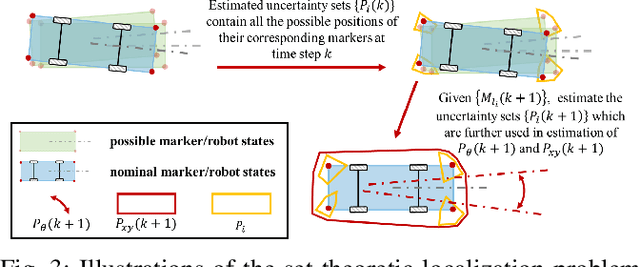Set-theoretic Localization for Mobile Robots with Infrastructure-based Sensing
Paper and Code
Oct 04, 2021



In this paper, we introduce a set-theoretic approach for mobile robot localization with infrastructure-based sensing. The proposed method computes sets that over-bound the robot body and orientation under an assumption of known noise bounds on the sensor and robot motion model. We establish theoretical properties and computational approaches for this set-theoretic localization approach and illustrate its application to an automated valet parking example in simulations and to omnidirectional robot localization problems in real-world experiments. We demonstrate that the set-theoretic localization method can perform robustly against uncertainty set initialization and sensor noises compared to the FastSLAM.
 Add to Chrome
Add to Chrome Add to Firefox
Add to Firefox Add to Edge
Add to Edge